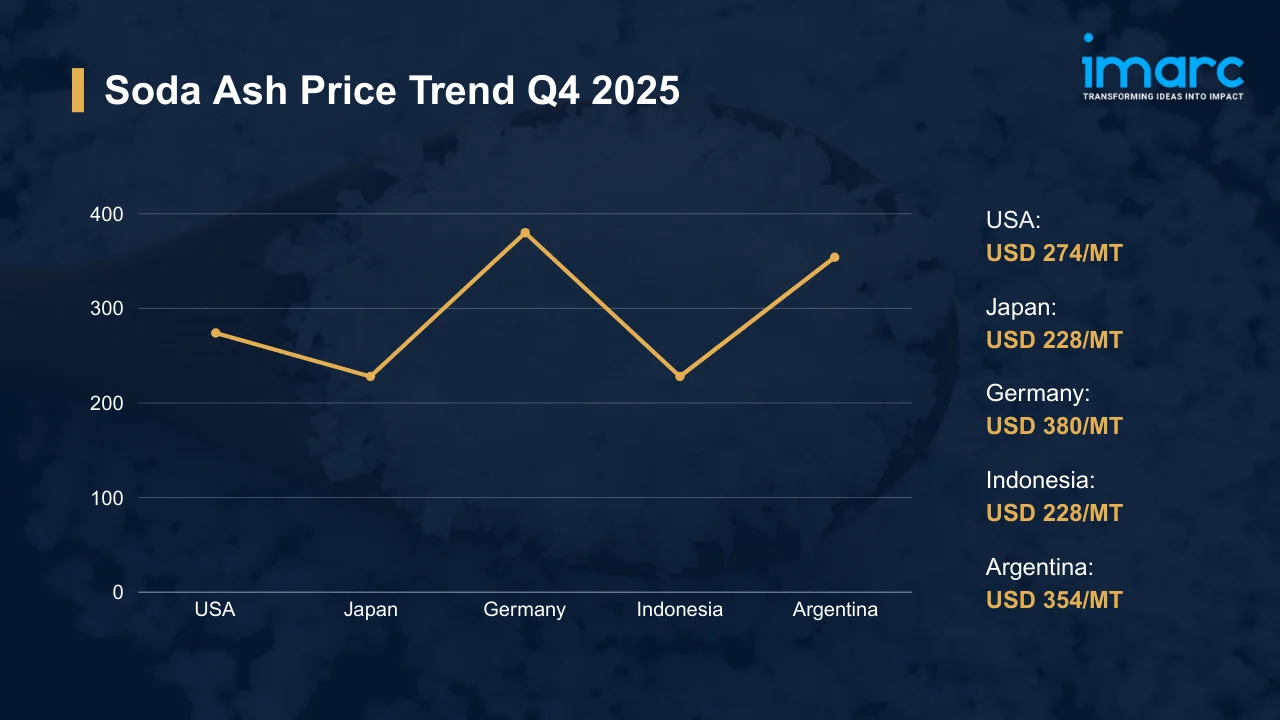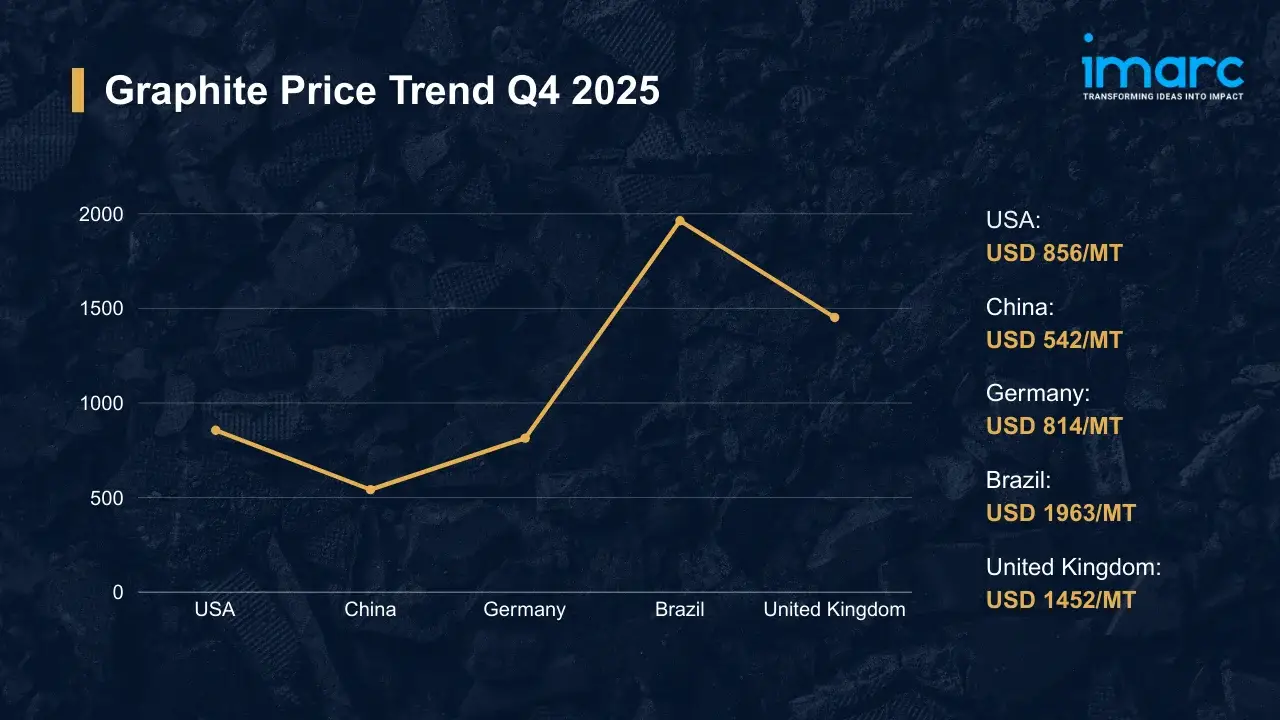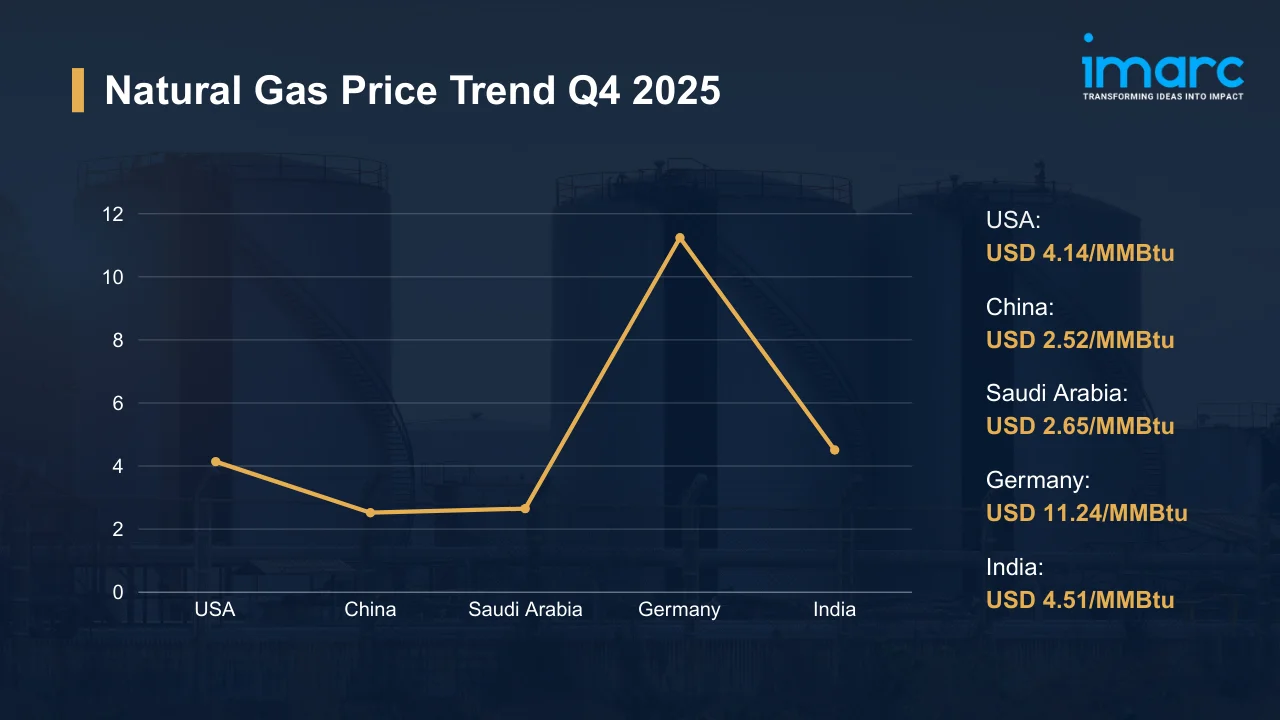Yellow Phosphorus Prices Rise Modestly in Q2 2025 Amid Supply Realignments and Steady Demand
27-Aug-2025_11zon.webp)
Amid shifting sourcing patterns and uneven downstream demand, the global yellow phosphorus industry is experiencing measured pricing adjustments, according to IMARC Group’s latest publication, Yellow Phosphorus Price Trend, Index and Forecast Data Report 2025 Edition, that provides updated insights for Q2 2025. The report highlights the way markets are adapting to changes in international feedstock choices, inventory positioning, and logistics. Key regions shaping this trend include North America, Asia Pacific, and Europe, where semiconductor-led consumption, fertilizer seasonality, and import dynamics continue to influence pricing momentum.
Q2 2025 Yellow Phosphorus Prices:
- USA: USD 4,520/MT
- Canada: USD 4,752/MT
- China: USD 3,317/MT
- Japan: USD 4,285/MT
- Germany: USD 3,638/MT
.webp)
To access real-time prices Request Sample
The current yellow phosphorus prices highlight the material’s essential role across semiconductors, fertilizers, flame retardants, specialty steels, and emerging battery applications, with sustained demand and supply-side constraints contributing to a stable-to-upward global price trajectory.
Key Regional Price Trends and Market Drivers:
United States
Yellow phosphorous prices in the United States reached USD 4,520/MT in June 2025. Values moved in a narrow band as some firms reduced reliance on Chinese-origin feedstock and diversified toward Vietnamese and broader Southeast Asian sources. This transition introduced logistical variability that shaped contract discussions, while uneven sectoral demand kept overall momentum contained.
Canada
Canada yellow phosphorous prices rose to USD 4,752/MT in June 2025. Semiconductor-linked procurement remained steady, but many buyers held elevated inventories from prior quarters. This prompted cautious purchasing behavior and fewer spot deals, limiting upward pressure even as core demand stayed intact.
China
In China, yellow phosphorus prices reached USD 3,317/MT in Q2 2025. Levels rose early in the quarter before easing as inventories accumulated at producers and traders. Stable output—anchored by long-term contracts—and ongoing downstream pull from semiconductors and fertilizers supported the market, while a slowdown in spot procurement tempered late-quarter pricing.
Japan
Yellow phosphorous prices in Japan reached USD 4,285/MT in June 2025. Buyers scaled back spot purchases toward quarter-end amid inventory build-ups and cautious trader sentiment awaiting export price direction. Despite this, downstream consumption was broadly steady, and production costs were largely unchanged through the quarter.
Germany
Germany’s yellow phosphorous prices stood at USD 3,638/MT in Q2 2025. Restocking urgency was low, with demand largely met via regular spot imports and no major logistical bottlenecks. Stable shipment patterns anchored pricing, while high energy costs and tighter environmental rules indirectly influenced the regional cost base.
Q2 vs. Q1:
| Country | Q2 2025 | Q1 2025 | Q2 vs. Q1 Trends |
|---|---|---|---|
| USA | USD 4520/MT | USD 4410/Ton | Modest increase in the price as semiconductor demand broadened and sourcing shifts toward Southeast Asia introduced logistical variability, after a subdued early-2025 backdrop |
| Canada | USD 4752/MT | USD 4650/Ton | Prices slightly increased in Q2, supported by earlier IT-sector revival and import dependence; elevated inventories in Q2 curbed additional upside and reduced spot activity |
| China | USD 3317/MT | USD 3233/Ton | Incremental gain from sustained semiconductor pulls and prior supply frictions; late-quarter inventory build and slower spot buying tempered momentum |
| Japan | USD 4285/MT | USD 4156/Ton | Gradual increase on semiconductor-led improvement from Q1. By late Q2, buyers cut spot purchases as inventories grew and traders awaited clearer export cues |
| Germany | USD 3638/MT | USD 3581/Ton | Small increase in price as import flows normalized versus earlier interruptions. High energy and environmental compliance costs shaped the cost base while demand stayed measured |
Yellow Phosphorus Industry Overview:
The global yellow phosphorus market size reached USD 4.4 Billion in 2024 and is projected to reach USD 5.9 Billion by 2033, at a CAGR of 3.40% during 2025-2033. The market growth is supported by agriculture’s need for fertilizers that enhance crop nutrition and soil fertility, alongside stable consumption in chemicals and derivatives.
Additionally, electronics is a key growth vector, with uses in semiconductors and LED manufacturing (including phosphor coatings). Further demand drivers include flame retardants for plastics, textiles, and electronics under tightening fire-safety standards, steel alloying to improve strength and corrosion resistance, and advancing roles in energy storage and batteries as EV and renewable deployment expands.
Recent Market Trends and Industry Analysis:
The market growth is driven by the rising global food requirement, which elevates fertilizer consumption and supports yellow phosphorus offtake. Electronics demand, spanning semiconductors and LED lighting, continues to require high-purity material, amplified by broader consumer electronics adoption and efficiency-focused lighting transitions.
Yellow phosphorus is integral to flame-retardant chemistries amid stringent fire-safety regulation, and it supports performance improvements in steel used across infrastructure. Battery-related applications are gaining traction with the scale-up of EVs and grid storage. At the same time, environmental regulations around extraction and processing are shaping supply strategies and costs, encouraging cleaner, more sustainable production methods and influencing global availability.
Strategic Forecasting and Analysis:
IMARC’s report incorporates forecasting models that project near-term price movements based on evolving trade policies, raw material supply, and technological trends. These tools enable businesses to mitigate risk, enhance sourcing strategies, and support long-term planning.
Key Features of the Report:
- Price Charts and Historical Data
- FOB and CIF Spot Pricing
- Regional Demand-Supply Assessments
- Port-Level Price Analysis
- Sector-Specific Demand and Supply Insights








.webp)




.webp)












